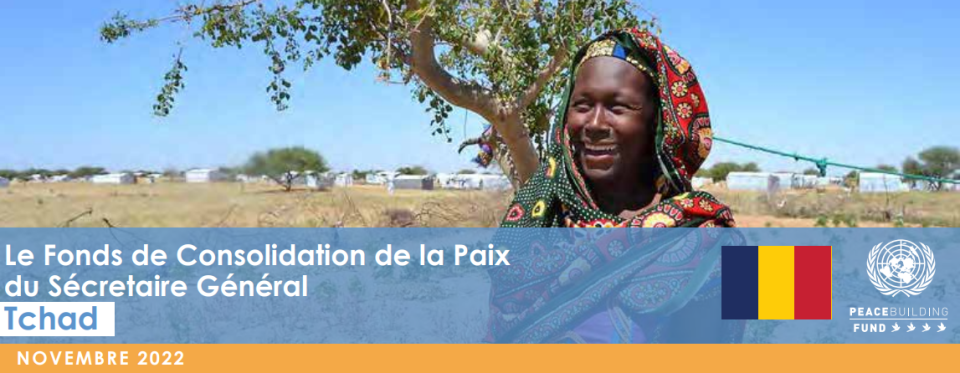In the vast tapestry of human experience, the Bahá’í teachings serve as a luminous thread weaving together the ideals of unity, peace, and justice. Recently, an inspiring gathering of chiefs in Chad has emboldened this vision, creating a clarion call for peace that resonates across borders and cultures. The collective wisdom of these leaders provides a unique opportunity to explore and implement Bahá’í principles in tangible, impactful ways.
The gathering of traditional chiefs in Chad represents not merely a meeting of local leaders but a convergence of custodians of cultural heritage, pioneers of social progress, and advocates for harmonious coexistence. Under the banner of Bahá’í teachings, which emphasize the importance of consultation and collective decision-making, this assembly embodies the essence of collaborative governance. Each chief, a venerable emblem of their community, brings forth narratives rich with historical significance and cultural wisdom that can inform contemporary approaches to conflict resolution and social development.
In Bahá’í thought, the principle of unity is paramount. The presence of these chiefs in Chad serves as a potent metaphor for the diversity of humanity, each individual and community contributing to the greater whole. This amalgamation of perspectives fosters an environment ripe for dialogue, where differences are not merely tolerated but celebrated. Embracing plurality, as encouraged in Bahá’í teachings, enables societies to transcend mere coexistence, driving them toward genuine collaboration and understanding.
As the chiefs convened, they engaged in deep contemplation of the challenges facing their regions—conflict driven by resource scarcity, sectarian strife, and socio-economic disparities. The Bahá’í perspective posits that such adversities can be viewed as opportunities for growth and learning. Solutions may emerge from the crucible of hardship, provided that leaders remain committed to the principles of justice and equity. By fostering a spirit of cooperation, these chiefs can cultivate peaceful coexistence, stimulating a renaissance of social development in their communities.
One of the quintessential teachings of the Bahá’í faith is the importance of recognizing the oneness of humanity. This tenet challenges the pervasive narratives of division and enmity that often underpin local, national, and international conflicts. The chiefs of Chad, tasked with sustaining peace in their respective realms, embody this principle. Their gathering is a resplendent testament to the efficacy of dialogue, showing that unity can arise from the very fabric of cultural heritage and traditional governance.
In fostering peace, it is incumbent upon these leaders to transcend traditional boundaries, embracing innovative approaches to governance that align with Bahá’í teachings. This may include promoting equitable access to resources, advocating for the rights of marginalized groups, and prioritizing education—an essential foundation for lasting peace. The lens of Bahá’í ethics encourages action based on the recognition of a common destiny, inspiring chiefs to engage in initiatives that uplift their communities and promote the welfare of all.
Moreover, the Bahá’í teachings underscore the significance of moral leadership. The chiefs, as stewards of their people’s aspirations and guardians of their cultural heritage, have the potential to become beacons of morality. By embodying principles of integrity, humility, and accountability, they can inspire confidence among their constituents. This moral rectitude fosters trust, enabling leaders to unify diverse factions and harness collective energies for social change.
The implications of this gathering extend beyond the geographical borders of Chad. As chiefs embody the kindling flame of dialogue and cooperation, their actions resonate throughout the region, setting a precedent for neighboring communities to emulate. The Bahá’í perspective highlights the interconnectedness of all peoples, rendering local peacebuilding efforts integral to global harmony. The harmonious resolutions achieved in Chad may inspire concerted initiatives across the African continent and beyond, as communities embrace similar frameworks grounded in Bahá’í principles.
Furthermore, the integration of women into leadership roles, as championed by Bahá’í teachings, is an essential dimension of the peacebuilding process. Women, often marginalized in traditional governance structures, possess unique insights and capabilities that can enhance decision-making. As chiefs in Chad recognize the need for inclusivity, they can catalyze a paradigm shift where women’s voices are amplified in leadership. The deliberate engagement of women fosters a holistic approach to peace, ensuring that all segments of society are represented in the quest for harmony.
As the chiefs conclude their gathering, they stand poised at the precipice of opportunity. The essence of Bahá’í teachings—a commitment to the oneness of humanity, collaborative governance, moral leadership, and inclusivity—serves as a guiding light in their ongoing endeavors. Each chief, imbued with a renewed spirit of purpose, can return to their communities as champions of peace, wielding the transformative power of Bahá’í principles to craft a legacy that transcends their immediate context.
In summation, the gathering of chiefs in Chad exemplifies the profound potential for peace embedded within the Bahá’í teachings. As custodians of their communities, these leaders bear the responsibility of translating abstract ideals into concrete actions. Through unity, inclusive dialogue, and moral governance, they are not only shaping the future of their regions but also illuminating a path toward a more peaceful world, one that resonates with the core tenets of the Bahá’í faith. The horizon for peace is indeed bright, illuminated by the collective efforts of those who dare to dream and act.
